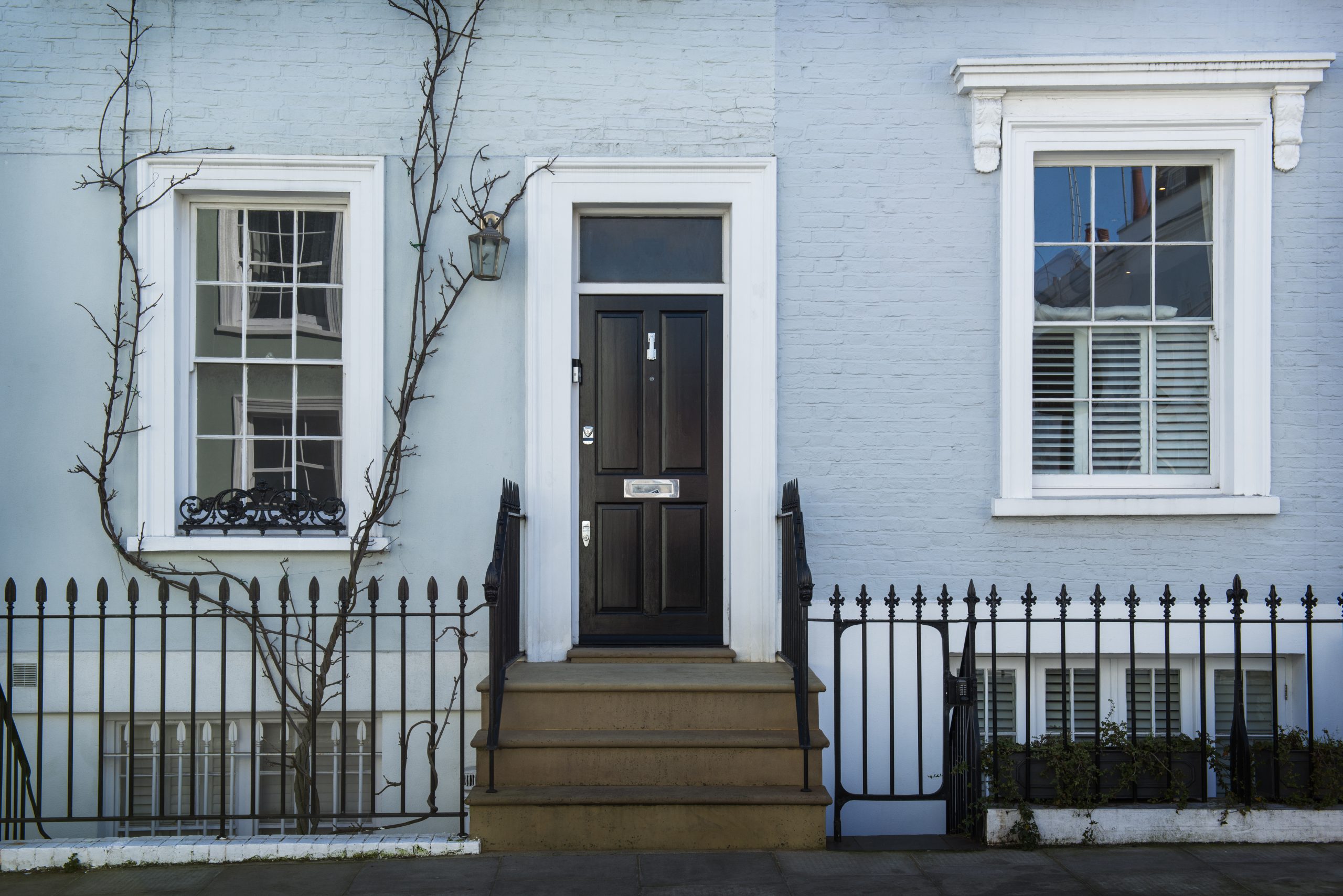CPAP Machine Price and Cost in Canada
What is the average CPAP machine price in Canada?
You’ve just been diagnosed with sleep apnea. Your doctor explains the condition, prescribes therapy, and then drops a phrase that stops you: “You’ll need a CPAP machine.” Now the big question—how much is this going to cost in Canada?
The answer isn’t one-size-fits-all. But don’t worry—let’s walk through it.
CPAP machines in Canada: Price breakdown in 2025
In Canada, a standard CPAP machine typically costs between $850 and $1,300, while more advanced units like Auto CPAPs or BiPAPs can go beyond $2,000. These are base prices—for the machine alone.
But that’s not the full story. Masks, humidifiers, filters, tubing—each one adds to the final bill. On average, a full starter setup ends up costing anywhere from $1,200 to $1,800 CAD.
Here’s a general idea:
| Machine Type | Price Range (CAD) |
|---|---|
| Standard CPAP | $850 – $1,300 |
| Auto CPAP (APAP) | $1,100 – $1,600 |
| BiPAP | $1,800 – $2,800 |
| Travel CPAP | $1,200 – $1,500 |
And masks?
- Basic nasal masks: $150 – $250
- Full-face masks: $200 – $350
- Specialty masks: higher depending on model
You can explore top-rated options like the AirFit F20A CPAP mask, a full-face design known for comfort and fit.
Why prices vary so much
Several variables affect how much you’ll end up paying:
- Type of device: Standard CPAPs deliver fixed pressure. APAPs adjust automatically. BiPAP machines—like those listed here—offer different pressure settings for inhaling and exhaling, ideal for more severe cases.
- Features: Heated humidifiers, digital screens, cellular connectivity, and smart data tracking all add to cost.
What about provincial coverage?
In provinces like Ontario, the Assistive Devices Program (ADP) can offset part of the CPAP cost—but not always fully. Many Canadians use private insurance or pay out of pocket.
Keep in mind, some insurers won’t reimburse purchases from non-approved vendors. That’s why choosing a Canadian supplier like BECCPAP helps—you’re buying local, and many products qualify for coverage.
Should you go for used or refurbished units?
It’s tempting to buy secondhand CPAP equipment. But here’s the reality:
- Hygiene and calibration issues are real
- Warranties are rarely included
- Insurance won’t usually cover used devices
The average CPAP machine price in Canada isn’t just a number—it’s a combination of the machine, accessories, support, and your health plan. But it doesn’t have to be overwhelming.
How to choose the right CPAP mask in Canada
Not all masks are created equal. That’s the first thing most CPAP users discover—usually the hard way—after nights of poor sleep, leaking air, or irritated skin. If you’re starting CPAP therapy or thinking of switching your mask, let’s go over how to make the right choice, especially in the Canadian market.
First: Understand your breathing and sleeping habits
Your sleeping style matters more than you think. Do you breathe through your mouth at night? Sleep on your side or stomach? Have facial hair or sensitive skin? All these factors should guide your decision.
Here’s a quick overview:
- Nasal masks: Ideal for people who breathe through their nose and prefer a minimalist fit. They’re great for side sleepers.
- Nasal pillow masks: Even smaller, with prongs that rest at the nostrils. Best for people who dislike bulk or want maximum freedom.
- Full-face masks: Cover both mouth and nose—perfect for mouth breathers or people with allergies or congestion.
Common fit issues and how to avoid them
The most common complaints? Leaks, pressure marks, and claustrophobia.
Here’s how to handle them:
- Leaking mask: Often caused by improper sizing. Measure carefully or get fit by a professional.
- Facial discomfort: Try masks with memory foam cushions or those with fewer contact points.
- Feeling closed-in: Nasal pillows or minimal-frame nasal masks can relieve this issue.
A good mask should seal well with minimal headgear—and it shouldn’t force you to sleep a certain way.
Materials and durability
Not all mask parts last the same amount of time:
- Silicone cushions typically last 3–6 months.
- Headgear straps may stretch out over time, needing replacement in 6–9 months.
- Frame systems tend to last longer but still require inspection for wear and tear.
Always check if replacement parts are available separately before buying. That way, you won’t have to repurchase the entire mask when one part wears out.
Travel and daily life considerations
Do you travel frequently? Some masks are easier to pack or clean than others. For example:
- Nasal pillows: Extremely portable, require minimal cleaning
- Full-face masks: May come with bulkier parts but offer consistent airflow control in all conditions
Also, if you read or watch TV before bed, low-profile masks are less likely to obstruct your view or movement.
Finding the right CPAP mask in Canada isn’t just about comfort—it’s about making therapy sustainable. If your mask doesn’t fit well, you won’t wear it consistently. But with the right approach—and by exploring reliable options like those at BECCPAP’s mask section—you can dramatically improve your experience, sleep quality, and long-term health.
What factors affect the cost of a sleep apnea machine?
Ever wondered why one CPAP machine costs $850 while another hits $1,600 or more? It’s not just brand name markup—there are real features, components, and logistics that influence the final price.
Let’s break down what actually drives the cost of a sleep apnea machine in Canada.
1. Type of machine: CPAP vs APAP vs BiPAP
The base price starts with the device type:
- Standard CPAP: Delivers one fixed air pressure. Basic but effective for many users.
- Auto-CPAP (APAP): Adjusts pressure automatically throughout the night based on your breathing.
- BiPAP: Provides separate pressures for inhaling and exhaling. Typically prescribed for complex or severe cases.
More advanced machines (especially BiPAP) require more sensors, smarter software, and additional calibration—so the cost rises accordingly.
2. Included features and accessories
Let’s say two machines are both CPAPs—but one is $300 more expensive. That difference likely comes from the features:
- Heated humidifier: Reduces dryness and improves comfort—built-in units raise the price.
- Data tracking: Cloud connectivity, Bluetooth syncing, and physician access all add value.
- Touchscreen display or multilingual interfaces
- Whisper-quiet motors and compact travel-friendly designs
And don’t forget accessories:
- Masks can range from $150–$350 depending on type and design
- Tubing, filters, humidifier chambers, and travel cases add to the final price
Sites like BECCPAP offer a wide selection of machines with varying feature sets so you’re not overpaying for things you don’t need.
3. Brand and build quality
Canadian customers often choose from big names like:
- ResMed
- Philips Respironics
- Fisher & Paykel
These companies invest heavily in R&D, and their devices tend to have:
- Better durability
- More refined software
- Quieter operation
While lesser-known brands might be cheaper up front, they may not offer the same support, warranties, or long-term reliability.
4. Prescription requirements
In Canada, most CPAP machines require a valid prescription. Why does that matter for price?
- Prescription devices usually include professional setup and support
- They may also qualify for insurance reimbursement or provincial programs like ADP in Ontario
Non-prescription machines (sometimes sold online from international sellers) can be cheaper—but often lack Canadian warranty coverage and medical support.
5. Warranty and service
Longer warranties add value:
- 2–3 years standard for most CPAP machines
- Some retailers offer extended service plans
Machines bought from licensed Canadian vendors (like BECCPAP) come with warranties honored nationwide—important if something malfunctions after six months.
Price comparison by feature tier
| Machine Category | Key Features | Price Range (CAD) |
|---|---|---|
| Basic CPAP | Fixed pressure, manual controls | $850 – $1,100 |
| Auto CPAP (APAP) | Auto-adjusting pressure, humidifier | $1,000 – $1,400 |
| Advanced BiPAP | Dual pressure, smart settings, humidifier | $1,800 – $2,800 |
| Travel-friendly CPAP | Compact, battery-compatible | $1,200 – $1,600 |
There’s no universal “best” CPAP machine—just the one that fits your sleep profile, prescription, and budget. Understanding the cost drivers helps you avoid unnecessary upgrades and focus on what truly matters.
In the next section, we’ll take a closer look at how BiPAP machines compare to CPAPs—not just in features, but in real-world costs and use cases.
How does the price of BiPAP machines compare to CPAP models?
If you’ve researched sleep apnea treatment, you’ve likely seen the terms CPAP and BiPAP—but what’s the actual cost difference, and when is it worth paying more?
Let’s explore the cost comparison between BiPAP and CPAP machines, focusing on value, medical use cases, and Canadian price ranges.
CPAP vs BiPAP: Quick refresher
- CPAP (Continuous Positive Airway Pressure): Delivers a single, fixed pressure throughout the night. Used for most mild-to-moderate cases of obstructive sleep apnea (OSA).
- BiPAP (Bilevel Positive Airway Pressure): Provides two levels of pressure—one for inhalation (IPAP), one for exhalation (EPAP). Designed for people with complex breathing issues, such as central sleep apnea (CSA), COPD, or high CPAP pressure intolerance.
BiPAP machines are more sophisticated—and that complexity comes at a higher price.
Canadian price comparison (2025 range)
| Machine Type | Price Range (CAD) | Common Use Cases |
|---|---|---|
| CPAP (Standard) | $850 – $1,100 | Mild to moderate OSA |
| Auto CPAP (APAP) | $1,100 – $1,600 | Variable pressure needs |
| BiPAP | $1,800 – $2,800 | Complex apnea, CSA, COPD, neuromuscular |
On average, BiPAP machines cost 60–90% more than standard CPAPs.
Why is BiPAP more expensive?
Here’s what you’re paying for:
- Dual-pressure algorithm: Requires smarter software and more precise sensors
- More powerful motor and air pump
- Customizable pressure settings across inhale/exhale cycles
- Often used in clinical and hospital-grade devices, which need more robust build quality
These technical upgrades also increase service complexity and warranty value, both of which factor into pricing.
Does everyone need a BiPAP?
Absolutely not.
CPAP is usually the first-line therapy. BiPAP is prescribed when:
- CPAP fails to resolve symptoms
- The patient has co-existing respiratory conditions (e.g., COPD or central apnea)
- Exhalation against CPAP pressure becomes uncomfortable or unsustainable
Dr. Raj Singh, a Canadian sleep specialist, explains:
“BiPAP is not a luxury upgrade—it’s a medical necessity in specific cases. It allows the patient to breathe with less effort and better oxygen exchange.”
(Source: Canadian Sleep Health Review, 2024)
Where to compare CPAP and BiPAP models?
If you’re unsure which machine is right for you, check product comparisons on specialized platforms like BECCPAP.ca. They provide clear specs, pricing, and feature breakdowns between CPAP and BiPAP models for Canadian customers.
Look for details like:
- Pressure range and algorithms
- Noise levels
- Warranty and replacement policies
- Whether your insurance covers both types
BiPAP machines are significantly more expensive, but for the right user, they’re also irreplaceable. If you’re on standard CPAP and still struggling, talk to your sleep specialist about whether BiPAP might be right for you.
Otherwise, CPAP remains the most affordable and accessible starting point—and in many cases, all you need for a good night’s sleep.
Are there ways to reduce the cost of your CPAP machine in Canada?
Let’s be real: CPAP therapy works, but it’s not cheap. A full setup can cost upwards of $1,800, especially if you’re paying out of pocket. But here’s the good news—there are smart, proven ways to reduce that cost in Canada, whether you’re insured or not.
Let’s go over them, step by step.
1. Check for government subsidies (by province)
Some provinces help pay for CPAP machines:
- Ontario: The Assistive Devices Program (ADP) covers 75% of the cost from approved vendors.
- Quebec: CPAPs may be partially reimbursed through RAMQ (if prescribed in hospital).
- Manitoba & Alberta: Hospital-based programs or income-assessed supports may apply.
These programs vary by region and often require:
- Sleep study results
- Official diagnosis
- Purchase through a registered provider
2. Leverage private health insurance
If you have extended benefits through work or personal insurance, check your plan’s durable medical equipment (DME) section. Most policies cover:
- The device itself (often up to $2,000 every 5 years)
- Masks, humidifiers, filters, tubing
- Accessories and replacement parts
Pro tip: Ask your insurer about pre-authorization. Some plans require documentation upfront.
3. Buy from cost-effective Canadian retailers
Big-box medical suppliers sometimes charge more due to overhead. But online-focused CPAP providers like BECCPAP offer:
- Lower base pricing
- Transparent package options
- Canada-wide shipping and support
You can explore CPAP machine bundles and deals directly through their site, reducing the need to buy parts separately or pay markup for local fittings.
4. Consider refurbished or open-box units
Some suppliers offer certified refurbished or open-box CPAPs:
- Fully sanitized
- Warranty-backed (6–12 months)
- Tested and repackaged professionally
This can save 20–40% compared to brand-new models. Just make sure you’re buying from a reputable Canadian vendor.
5. Use forum reviews and coupon opportunities
Places like r/CPAP on Reddit and CPAPtalk.com often share:
- Discount codes
- Honest brand reviews
- User experiences with insurance claims and setup
Also check seasonal promotions—especially around World Sleep Day or major health-related holidays. Some vendors run sales or bundle deals during those times.
6. Stretch the life of your equipment
A little maintenance goes a long way:
- Clean tubing and masks weekly
- Replace filters monthly
- Use distilled water in humidifiers to prevent buildup
Good care = less frequent replacements = long-term savings.
Step-by-step savings guide
- Get a prescription from a Canadian sleep specialist
- Check your province’s support programs (e.g. ADP in Ontario)
- Contact your insurance for pre-approval
- Compare vendors, both local and online (including BECCPAP)
- Ask about refurbished units or bundled options
- Apply any available discounts or rebates before finalizing your purchase
Reducing the cost of your CPAP machine in Canada isn’t about cutting corners—it’s about making informed choices. Whether you’re insured or not, resources exist to help. And with a little research, you can breathe easy knowing you paid less—but still got the quality you need.
What’s the bottom line on CPAP machine pricing in Canada?
After all the breakdowns, tables, and insurance tips, you might still be wondering: What’s the real takeaway when it comes to CPAP machine costs in Canada?
Here’s the bottom line.
Key cost ranges (2025 update)
| Category | Typical Price (CAD) | Notes |
|---|---|---|
| Basic CPAP | $850 – $1,100 | Fixed pressure, limited features |
| Auto CPAP (APAP) | $1,100 – $1,600 | Auto-adjusting pressure |
| BiPAP | $1,800 – $2,800 | Advanced dual pressure |
| Accessories bundle | $200 – $400 | Masks, tubing, humidifiers, filters |
| Refurbished CPAP | $600 – $950 | Limited warranty; only from trusted vendors |
By use case: Which machine makes sense?
- Budget-conscious users: Look for a basic CPAP without extra features. Consider refurbished options from Canadian vendors.
- Mid-range needs: Auto CPAPs (APAP) strike a balance between comfort and price. Suitable for most mild to moderate OSA cases.
- Complex cases: BiPAP machines offer pressure relief and customization—but should only be used under medical guidance.
Expert recommendation
According to the Canadian Sleep Society:
“Matching the right CPAP device to the patient’s profile—not just budget—is key to long-term adherence and therapy success.”
When in doubt, consult with a sleep specialist and consider platforms like BECCPAP.ca that offer a wide variety of models and Canadian-friendly support.
Yes, CPAP therapy in Canada can be expensive—but it doesn’t have to be overwhelming.
Use the tools at your disposal: government programs, private insurance, online research, and competitive pricing from Canadian suppliers. The investment you make now directly affects your sleep quality, daily function, and long-term health.
No shortcuts—but plenty of smart moves.
- CPAP Machine Price and Cost in Canada - July 24, 2025
- Are Vaporizers Harmful to Health? - May 1, 2025
- Why Standard Door Width Is Essential for Healthy, Accessible Homes in Canada - April 24, 2025



